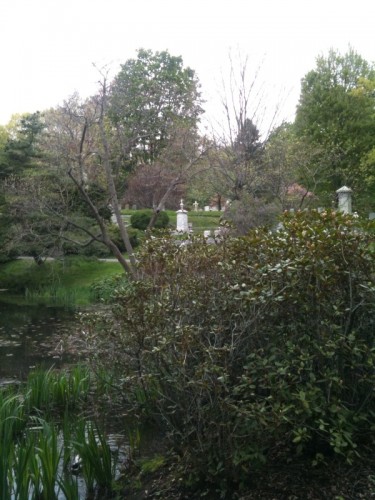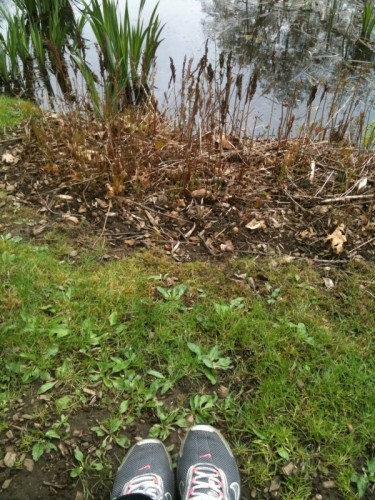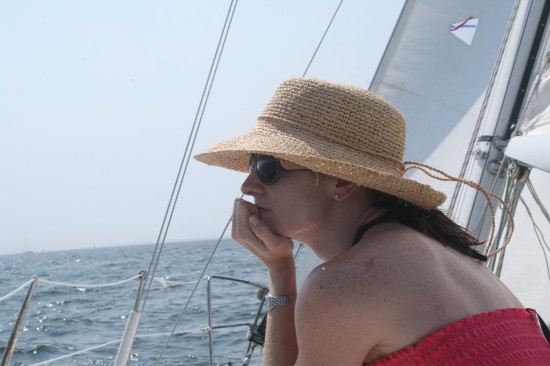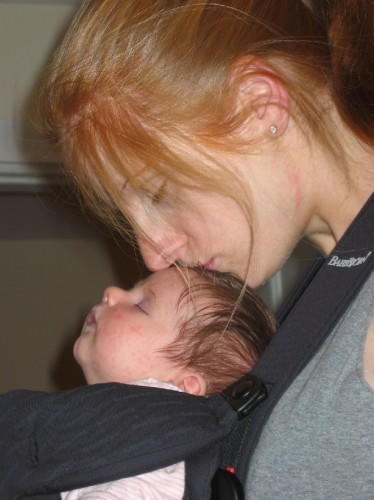
Yesterday was a tough day. I was sad and tired and emotional. Midmorning, driving home from an errand, I instinctively turned into a big cemetery near my house. I love this cemetery; I grew up visiting it with my mother. We’d walk around, admiring the trees and flowers in the various seasons. I have also attended many funerals at the chapel in the middle of the cemetery. It is a hushed and private place, with beautifully tended landscaping interspersed with headstones and formal tombs of weathered white marble. It is big and rambling, and it is easy to get lost. I drove around today until I found my favorite spot, by one of several little ponds.
I parked my car and walked to a stone bench by the pond. I was alone and didn’t see another person for the whole 45 minutes I sat there. It was cold and gray, and I shivered in my Juicy sweatpants and thin fleece jacket. I hunched over, shoving my hands deep into my jacket pockets for warmth. I kept my sunglasses on even though it was spitting rain, mostly to hide the tears that were rolling down my face.
Even on this resolutely, steely gray day, spring was apparent everywhere. The trees are bursting into bright green bloom, and the bush on my right was dotted with tight, bright pink buds. Two ducks, a male and a female, swam in the reeds at the pond’s edge right by my feet. In the rough patch of grass and wood chips where the lawn met the pond, a few tightly curled fiddleheads emerged. Their luminous greenness stood out against the dull brown of the wood chips.
Every single thing I could see, even the very place I had come, bidden by something I can’t name, sang of the interconnectedness of birth and death. Of beginnings and endings, wound together into a tangled knot. Impossible to separate. I sat there and felt the waves of emotion rising in my chest, trying to regulate my breathing but failing, nature’s insistent nascence in front of me blurring with my tears. I thought about Elizabeth‘s words: sometimes the big picture is more than I can carry. Sometimes – yesterday morning – I know this feeling intimately..
Loss haunts every single moment of this life, even the most suffused with newness, with birth. It is undeniable. The reality of this is sometimes more than I can bear. The awareness of loss, of death, of endings bangs around in my chest like a moth trapped against a screen window. Sometimes so powerfully I can’t believe I’m not visibly jerking around. Impending loss pulses in every single moment, throbbing like a heartbeat, making me think of the way you can faintly feel blood pumping out of a papercut.
Maybe it’s not a knot, though. Maybe it is simply two flip sides of a single reality. As we say goodbye to things, so we welcome new ones. I wish I could trust that. Or that it somehow mitigated the searing pain of the loss. That is so hard for me, who is so very attached. I know I should be less attached. I don’t know how, though. I realize that these are just the two halves of this human experience, of this achingly full and short life: beginnings and endings, birth and death, loss and life. They are as inextricable as night is from day.
And so I sat there. Trying to do as I have been trying to do: to feel my feelings, to sit with them without panic (so hard for me) and to just be patient. I looked at the water and the life bursting forth everywhere. I felt the roaring inside my chest and the raindrops on my skin, watched the ducks, tried to believe in the little green shoots that were so valiantly growing up through the ground. As I felt the tension leaving my body my shoulders fell and my back sagged into a comma, and my racing heart finally slowed. I began to breathe as I noticed that even in a place defined by death, and endings, life pushes through. I am trying to trust that. Really, really trying.



